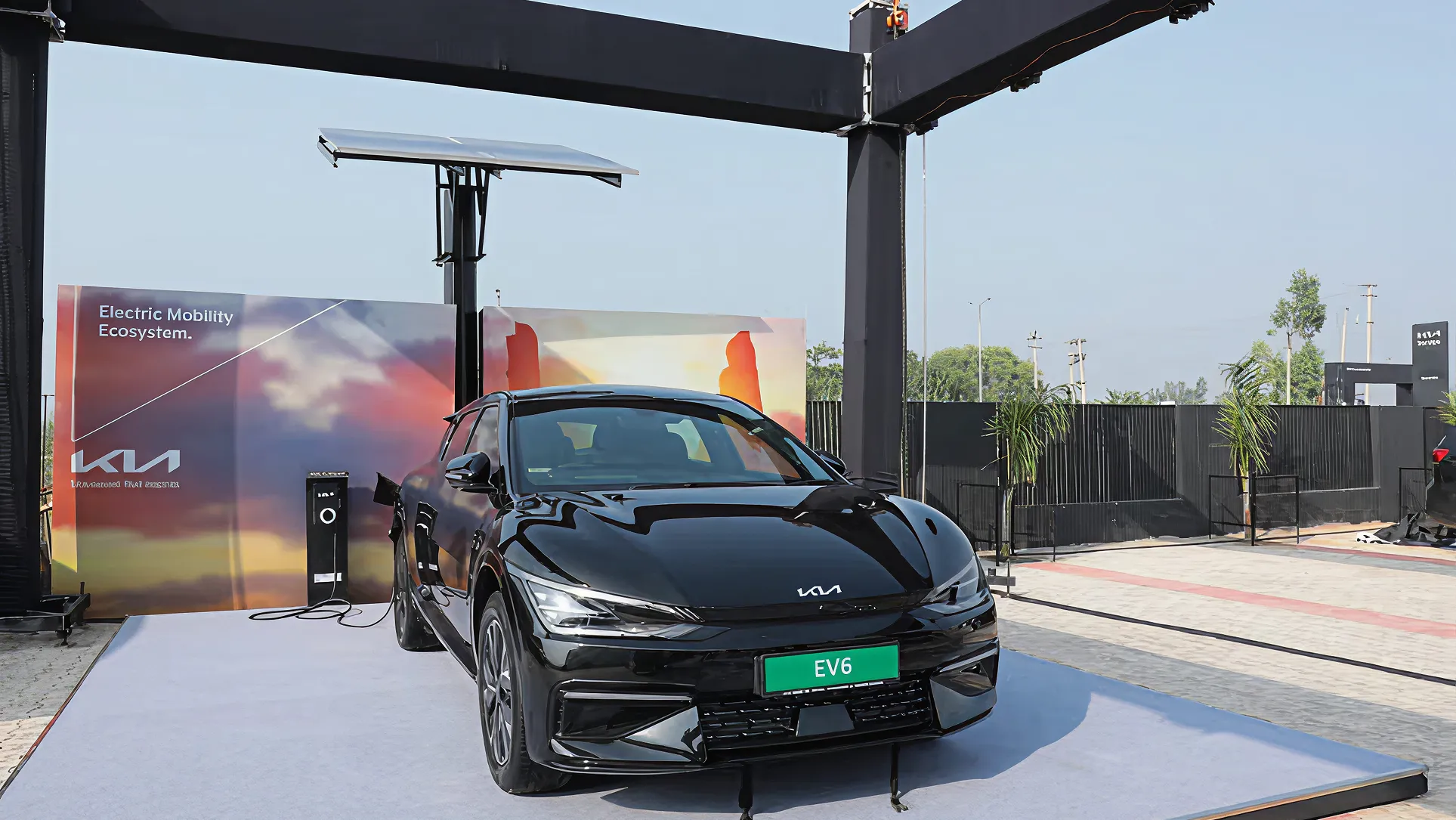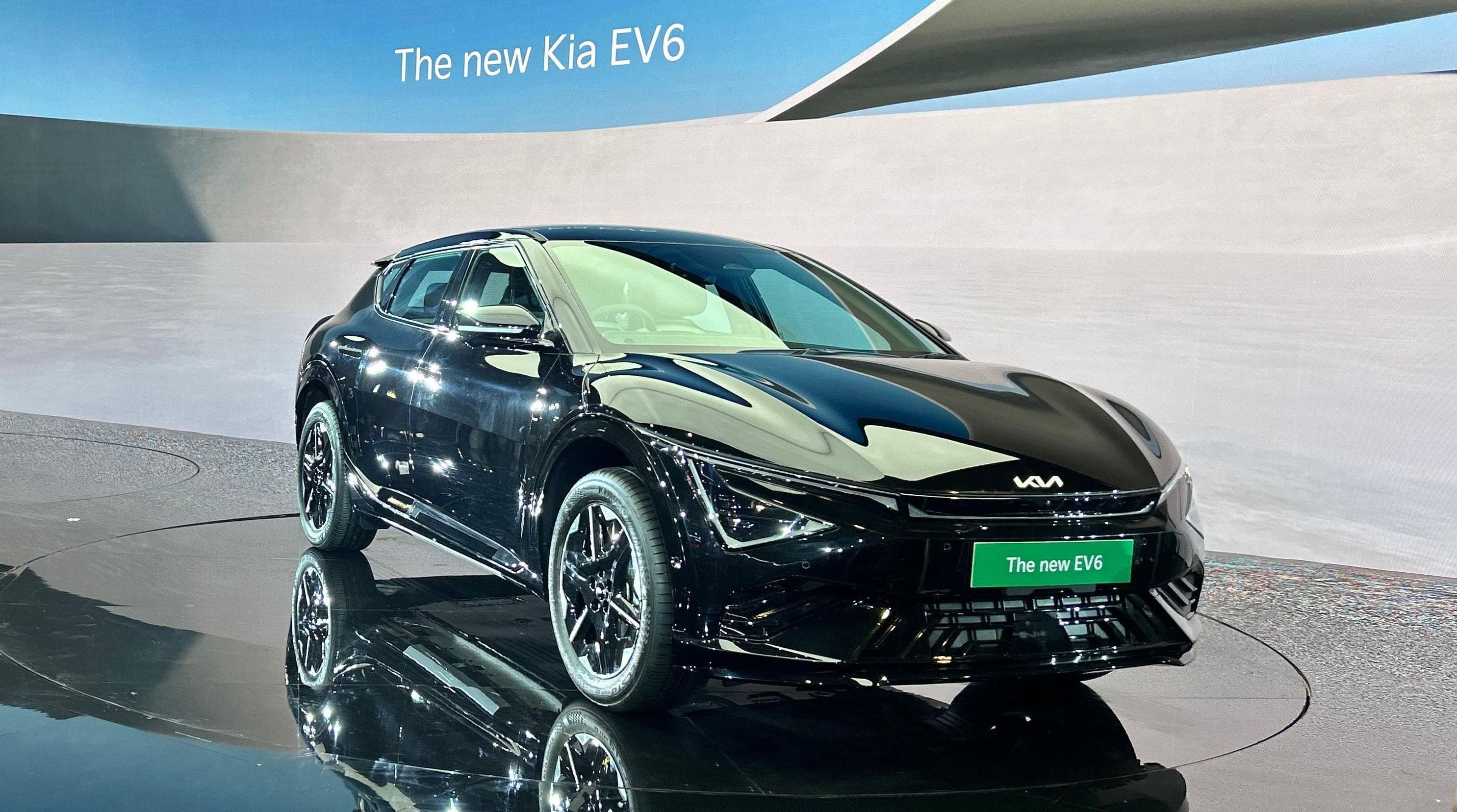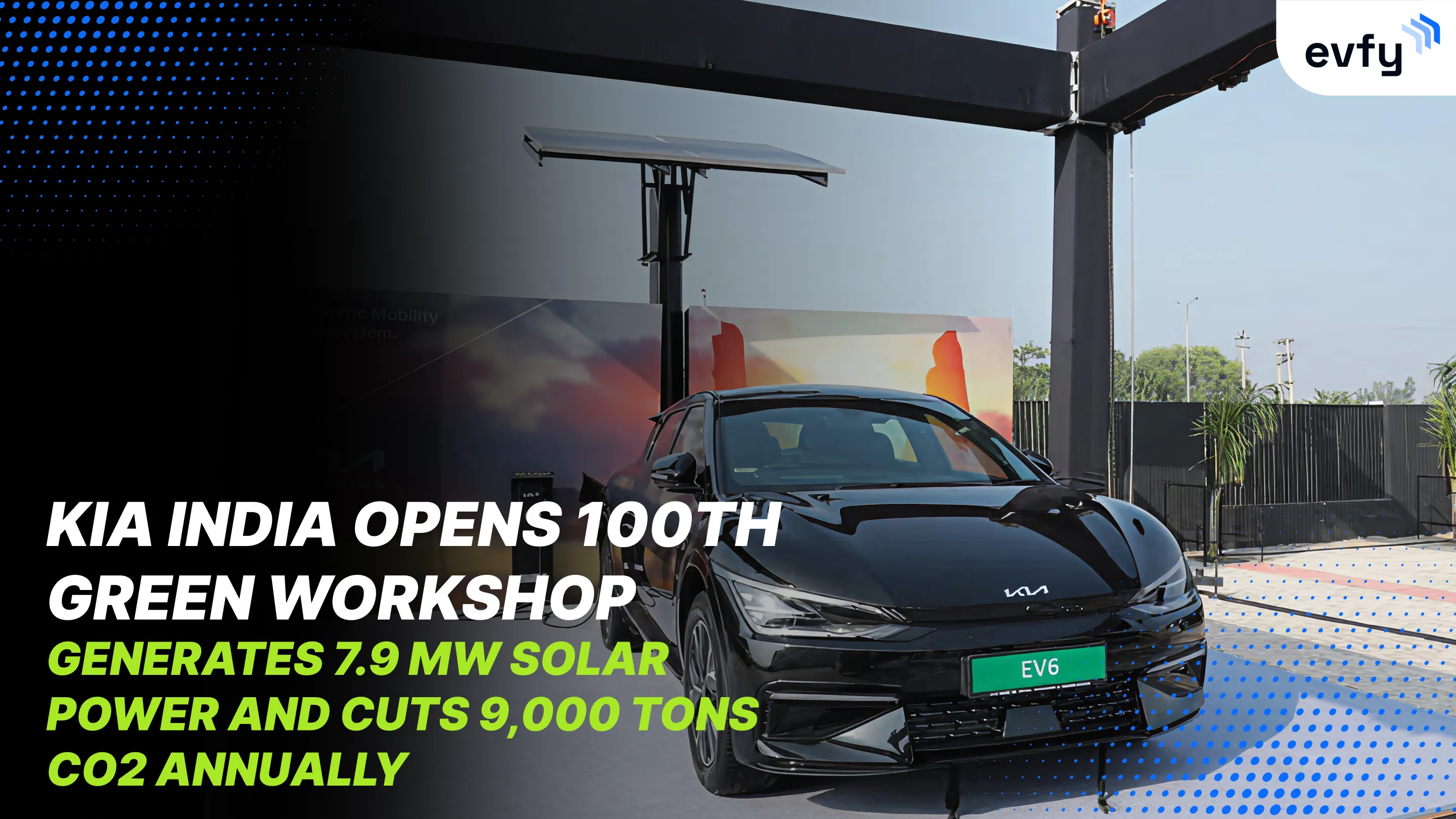Quick Highlights:
- Kia India opens its 100th Green Workshop in Kanpur.
- Collectively, these workshops generate 7.9 MW of solar power.
- Initiative prevents around 9,000 metric tons of CO2 emissions annually.
- Company plans to expand to 150 eco-friendly workshops by 2026.
- Facilities feature water conservation, renewable energy, and recycling systems.
- Kia India currently has three EVs in its portfolio and plans to launch the Syros EV soon.
Kia India Marks Milestone with 100th Green Workshop in Kanpur
Kia India has reached a major milestone in its sustainability journey by inaugurating its 100th Green Workshop at Bright Kia in Kanpur. This achievement comes just two years after the automobile manufacturer launched its green initiative in 2023 at Ransh Kia, Rohtak. With a strong focus on reducing environmental impact and advancing sustainable aftersales services, Kia India now aims to scale up its eco-friendly service network to over 150 workshops by 2026.

Solar Power Generation and Emission Reduction
The automaker’s 100 Green Workshops collectively generate 7.9 MW of solar power, significantly reducing dependency on conventional energy sources. This clean energy effort prevents approximately 9,000 metric tons of CO2 emissions every year, which the company equates to the absorption capacity of 4,50,000 mature trees. By adopting renewable energy integration at scale, Kia India is setting a benchmark in sustainable operations within the automobile industry.
Eco-Friendly Features of Green Workshops
Kia’s Green Workshops incorporate advanced sustainability technologies that make them energy- and resource-efficient. These include:
- Rainwater harvesting systems to reduce freshwater dependency.
- Natural lighting and motion sensor technology for better energy efficiency.
- Effluent treatment plants to manage wastewater safely.
- Steam wash systems for water conservation during vehicle cleaning.
- Waterless urinals to reduce overall water usage.
Additionally, these workshops are equipped with comprehensive recycling programs. Automotive waste such as used batteries, waste oil, and hazardous materials is disposed of or recycled responsibly, aligning with global best practices in automotive sustainability.

Kia India’s Commitment to Sustainable Mobility
Commenting on the achievement, Atul Sood, Senior Vice President, Sales and Marketing, Kia India, said:
“Achieving the milestone of 100 Green Workshops within a short span of two years underscores Kia India's commitment to building a sustainable mobility ecosystem. Each workshop brings us closer to a world where progress doesn’t come at the planet’s cost. This initiative, alongside our portfolio of three EVs, is a significant reflection of our continued efforts to reduce environmental impact, enhance operational efficiency, and shape a cleaner, smarter mobility for our future generations.”
Kia India’s Growth and EV Portfolio
Kia India operates a modern manufacturing facility in Anantapur District, Andhra Pradesh, with an installed annual production capacity of 300,000 units. Since starting mass production in August 2019, the company has dispatched nearly 1.5 million vehicles, including 1.2 million units for the domestic market and 367,000 units for exports.

The automaker is also strengthening its electric vehicle portfolio in India. Currently, Kia has launched three EVs — EV6, EV9, and Carens Clavis EV — offering consumers a wide range of sustainable mobility options. The company is further expected to expand its lineup with the upcoming Syros EV, which has been spotted testing multiple times on Indian roads.
With 796 customer touchpoints across 360 cities and more than 470,000 connected cars, Kia India is rapidly building a strong base of tech-driven, eco-conscious mobility solutions.
Looking Ahead
Kia India’s aftersales sustainability initiative reflects a long-term vision of reducing environmental impact while delivering customer convenience. By planning to expand its Green Workshop network to 150 locations by 2026, the automaker is not only redefining aftersales service but also playing an active role in India’s clean energy and sustainability transition.


